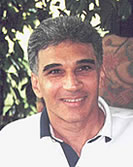March 2015 Article
Get Tom Veneziano's book The Truth about Winning! at Amazon.com
Tennis Server
|

 |
The Tennis Lesson Paradox
Ask anyone, and they will agree: A tennis lesson is where you go to learn tennis. Most students will argue without a doubt that this is the reason they come to their lessons week after week. And yet, when you look closer, you will see that "doing well" in the lesson takes priority over actual learning. They obsess over executing strokes correctly, they long to perform better, they need to make every shot. Subconsciously, the true reason they have come to the lesson is because they want to do well. "When you improve a little each day, eventually big things occur. When you improve conditioning a little each day, eventually you have a big improvement in conditioning. Not tomorrow, not the next day, but eventually a big gain is made. Don't look for the big, quick improvement. Seek the small improvement one day at a time. That's the only way it happens - and when it happens, it lasts." -- Coach John Wooden With all this in mind, here is the paradox of a tennis lesson: In order to improve my student's game I must push him or her into failure. He or she must fail and fail and fail again, until their body figures out how to perform the shot. This means they are training and learning with very little improvement at first. Considering the way most players think about doing well in a lesson, you have a problem. The paradox: For them to learn I must push them to fail, but in most players' minds failing means they are not doing well. Depending on the player, this can be a huge problem. Even when I explain the process and how it all works, to not do well can still present a monumental obstacle. The coach now faces another problem: determining exactly how much to push that player. If you push a student too much, they cannot take all the failures. If you do not push them enough, learning will slow down dramatically. Oddly enough, the very process that will help the student learn faster is one that the student wants nothing to do with. In fact, when they are pushed and fail, the student often wants to stop the drill because they are doing poorly. They want to learn, but they want to do something they are already skilled at doing or learn something new but not fail. Huh? The true solution is for players to mentally change how they approach taking lessons. They must stop thinking in terms of doing well. They are there to learn and learning means failure, lots of failure! Think in terms of learning in small incremental steps. As Coach Wooden says, "Seek the small improvement one day at a time. That's the only way it happens - and when it happens, it lasts."
This column is copyrighted by Tom Veneziano, all rights
reserved.
Tom is a tennis pro teaching
at the Piney Point Racquet Club in Houston, Texas. Tom
has taught thousands of players to think like a pro with
his Tennis Warrior System.
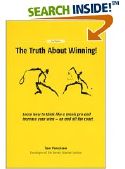
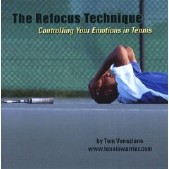
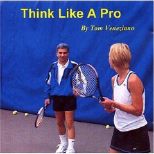
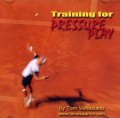
Audio CDs by Tom Veneziano:
|



October 2022 Tennis Anyone: Patterns in Doubles by John Mills. September 2022 Tennis Anyone: Short Court by John Mills. |
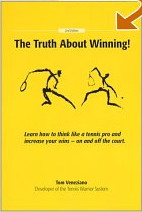
 You will join 13,000 other subscribers in receiving news of updates to the Tennis Server along with monthly tennis tips from tennis pro Tom Veneziano.
You will join 13,000 other subscribers in receiving news of updates to the Tennis Server along with monthly tennis tips from tennis pro Tom Veneziano. 